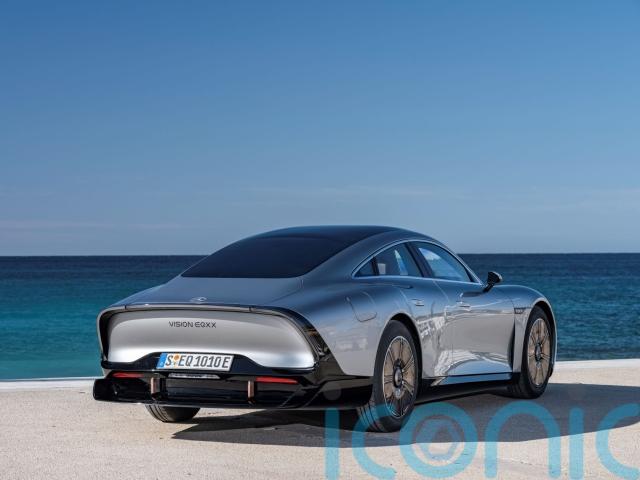
Mercedes has put its Vision EQXX electric car to the test with 626 miles conducted on a single charge.
Travelling from Mercedes-Benz’s site in Sindelfingen, Germany, the Vision EQXX was driven across the Swiss Alps and northern Italy, before heading towards its final destination of Cassis on the Côte d’Azur, France.
Undertaken at regular road speeds – with a fast-lane section on the German autobahn at speeds of up to 87mph – the route left the Vision EQXX’s batteries at around 15 per cent, leaving 87 miles of range remaining. It achieved an average energy consumption of 8.7kWh per 100 kilometres, too.

The long-distance drive was undertaken with the charging socket point on the car sealed, with the whole journey accompanied by an independent expert from German certification body TÜV Süd.
Ola Källenius, chairman of the board of management of Mercedes-Benz Group AG, said: “We did it! Powering through more than 1,000 kilometres with ease on a single battery charge and a consumption of only 8.7 kWh/100 km in real-world traffic conditions.
“The Vision EQXX is the most efficient Mercedes ever built. The technology programme behind it marks a milestone in the development of electric vehicles. It underpins our strategic aim to ‘Lead in Electric’”.
The successful road trip of the #VISIONEQXX has proven the real-world potential of outstanding electric #efficiency and #range. Plus, it delivered valuable insights for #MercedesBenz’ aspiration to #LeadInElectric. pic.twitter.com/Cmwe5VfDJH
— Mercedes-Benz (@MercedesBenz) April 14, 2022
The EQXX’s efficiency lies within its aerodynamic properties which allow it to effectively cut through the air. With its smoothed-out body style, it gives ‘the wind virtually nothing to grab hold of’, according to Mercedes, while because the car is 50mm narrowed at the rear than the front, the rear wheels roll in the slipstream of the fronts. There’s also an active rear diffuser that automatically deploys at 37mph to help reduce drag further.
The EQXX also uses low roll-resistance tyres developed specifically for the car by Bridgestone, incorporating a large diameter but a narrow tread.
A fixed solar panel roof with 117 solar cells is used to power a 12-volt battery which, in turn, is used to supply energy to the auxiliary systems such as the satellite navigation. By removing the load off the primary batteries, this system increases range and Mercedes claims that it boosts range by more than two per cent, or around 16 miles over the 626-mile journey.
Subscribe or register today to discover more from DonegalLive.ie
Buy the e-paper of the Donegal Democrat, Donegal People's Press, Donegal Post and Inish Times here for instant access to Donegal's premier news titles.
Keep up with the latest news from Donegal with our daily newsletter featuring the most important stories of the day delivered to your inbox every evening at 5pm.